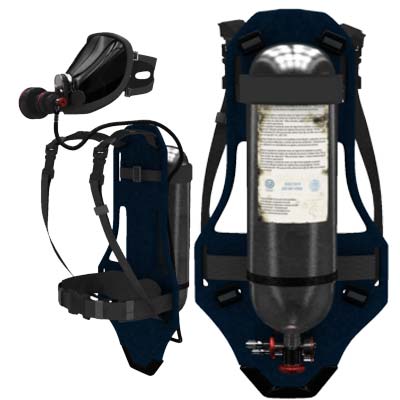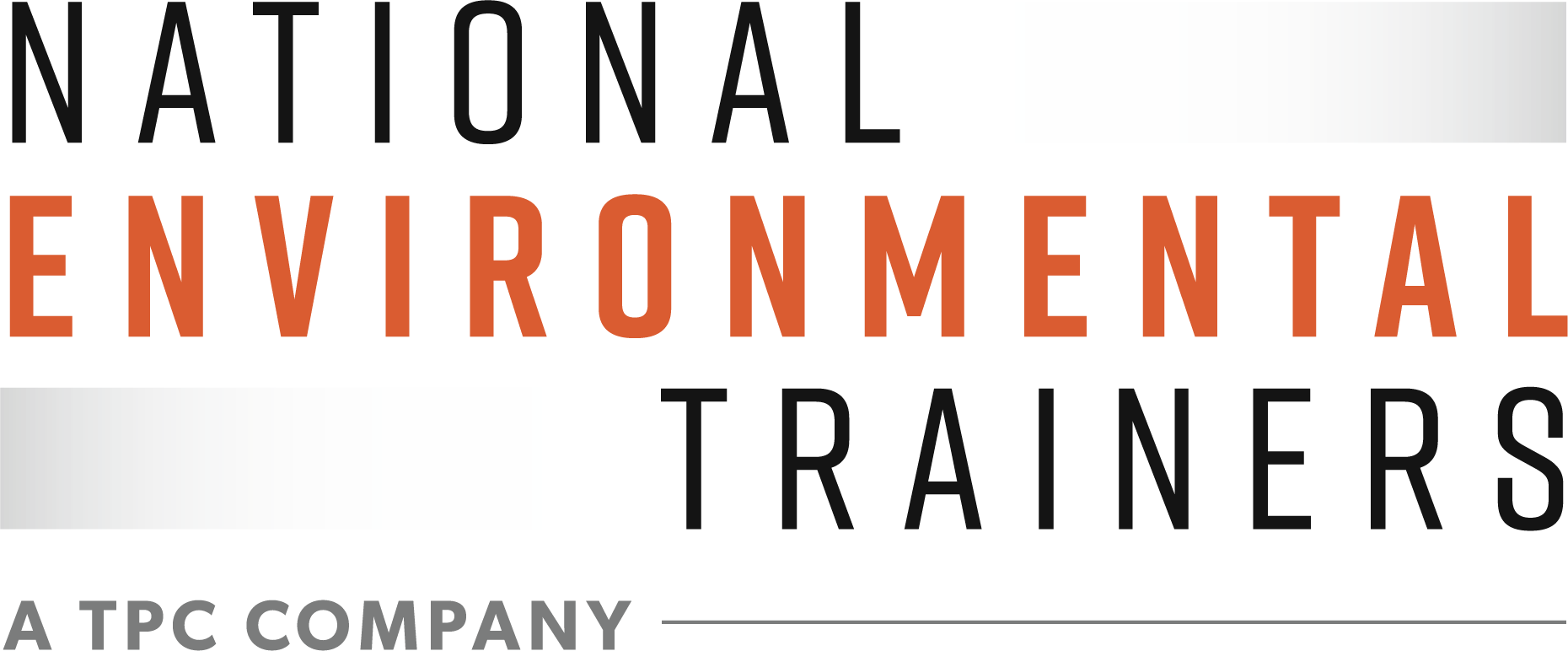Self-Contained Breathing Apparatus (SCBA)
Self-Contained Breathing Apparatus (SCBA)
A self-contained breathing apparatus (SCBA) is a device worn to provide breathable air in environments with oxygen deficiency, smoke, dangerous gases, and other airborne contaminants that may be otherwise dangerous to breathe. Workers handling hazardous materials or operating in contaminated zones are typically required to wear a self-contained breathing apparatus. Only positive-pressure SCBAs are recommended for entry into atmospheres that are immediately dangerous to life and health (IDLH).

An SCBA typically consists of a facemask with a hose that connects to an air source worn by the user. The air source can be a tank of compressed air, compressed oxygen, or an oxygen-generating chemical.
Types of Self-Contained Breathing Apparatuses
Self-contained breathing apparatuses can be broken down into escape-only or entry-and-escape. Escape-only SCBAs are frequently continuous-flow devices with hoods that can be donned to provide immediate emergency protection. Employers should provide and ensure that employees carry an escape SCBA where such emergency protection may be necessary.
Entry-and-escape SCBA respirators give workers untethered access to nearly all portions of the worksite, but decrease worker mobility, particularly in confined areas, due to both the bulk and weight of the units. Their use is particularly advisable when dealing with unidentified and unquantified airborne contaminants.
There are two types of entry-and-escape SCBA’s: Open-circuit and closed-circuit. In an open-circuit SCBA, air is exhaled directly into the ambient atmosphere. In a closed-circuit device, exhaled air is recycled by using an alkaline scrubber to remove the carbon dioxide and replenish the consumed oxygen with oxygen from a solid, liquid, or gaseous source.
The types of SCBAs and their relative advantages and disadvantages are described in our HAZWOPER training.
SCBA Requirements
As required by MSHA/NIOSH 30 CFR Part 11.80, all compressed breathing gas cylinders must meet minimum U.S. Department of Transportation requirements for interstate shipment. (For further information, see 49 CFR Parts 173 and 178.) All compressed air, compressed oxygen, liquid air, and liquid oxygen used for respiration shall be of high purity and must meet all requirements of OSHA 29 CFR Part 1910.134(d). In addition, breathing air must meet or exceed the requirements of Grade D breathing air as specified in the Compressed Gas Association pamphlet G-7.1 and ANSI Z86.1-1973.
Complete Your SCBA Training
A self-contained breathing apparatus requires proper training before use.
For example, duration of the air supply is an important planning factor in SCBA use. This is limited by the amount of air carried and its rate of consumption. SCBAs are also bulky and heavy, so they increase the likelihood of heat stress and may impair movement in confined spaces.
Sign up for our Personal Protective Equipment training today to become properly certified for the use of an SCBA apparatus. You can register as an individual or as a group. National Environmental Trainers offers discounts to groups of 3 or more.

